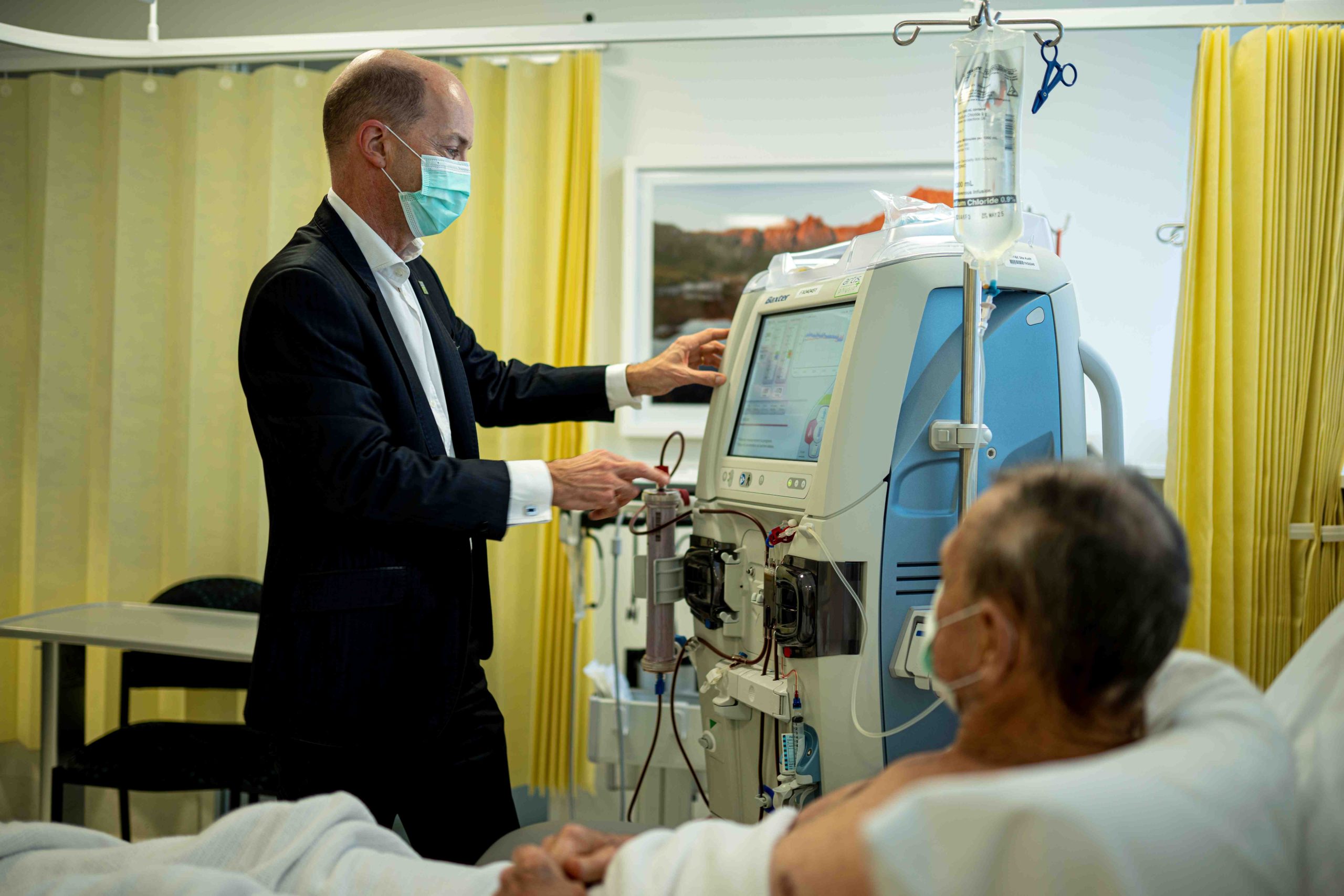
In celebration of World Kidney Day 14 March 2024, we had the opportunity to chat with Professor Matthew Jose about his transformative study into motherhood and kidney disease. Serving as a renal physician at the Royal Hobart Hospital and Chair of Medicine at the University of Tasmania, Professor Jose has dedicated his career to advancing kidney health. His work shines a light on the experiences of prospective mothers facing kidney disease, aiming to provide clarity and support. Celebrated for his contributions, Professor Jose's insights are especially poignant on a day dedicated to raising awareness of kidney health worldwide.
This year's World Kidney Day is all about "Kidney Health for all." How are you and your team getting involved in this important cause?
A: For World Kidney Day, our focus is on promoting "Kidney health for all" across Tasmania. We're tackling the challenge head-on by breaking down barriers to optimal kidney care. With new treatments in our arsenal, we're now better equipped than ever to prevent or delay kidney disease.
Kidney disease seems like a silent issue. How prevalent is it among Tasmanians?
A: It's more common than many realise – one in eight Tasmanians have low kidney function, and this figure jumps to one in three for those aged 65 and over. With over 4,000 individuals facing severe kidney disease and 600 relying on dialysis or a transplant, it's a significant health concern here.
Your groundbreaking study on motherhood and kidney disease fills a crucial gap in information for prospective mothers. What kind of impact do you hope to have for Tasmanians?
A: Our study shines a light on vital information for women with early or mild kidney disease. It's all about empowering them to make informed decisions regarding pregnancy, understanding the impact of their condition on both themselves and their babies. This clarity was missing before, and we're here to change that.
Can you give us a walkthrough of your study's process, especially how you're assessing the impact on patients and their outcomes?
A: Fifty years ago, women with kidney disease were often advised against pregnancy. Despite improvements in care, there's still a void in specific guidance. Our study identifies women with abnormal kidney markers before pregnancy, enabling us to explore the effects on both the mothers and their babies.
How have the outcomes looked for these mothers and their babies so far?
A: The response from the kidney community and the Society of Obstetric Medicine has been incredibly positive. We're in the process of seeking peer review for our findings, aiming to share our insights more broadly soon. We're also working closely with Assoc. Prof Shilpa Jesudason and Pregnancy and Kidney Research Australia, a patient-support portal, to disseminate this crucial information.
With the promising direction of your current research, do you see further studies in this area on the horizon?
A: Absolutely. Our goal is to continue conducting robust research that can lead to better outcomes for mothers with kidney disease and their children. There's so much more to learn and achieve in this space.
You are also the recipient of the Foundation’s Lowenthal Muller grant. Can you share any recent developments, particularly regarding health outcomes and the treatment burden for Tasmanians with kidney failure?
A: Our research, supported by the Lowenthal Muller Grant, has recently shed new light on the health outcomes and personal burden of various treatment options for Tasmanians dealing with kidney failure. A key aspect of our approach has been to actively involve kidney patients in our research. By assembling kidney consumers to review this crucial information, we're not just analysing data; we're engaging with those it impacts most to ensure our findings are genuinely informative. This collaborative process is guiding us in developing new resources aimed at supporting patients in making informed decisions about their care.
We've already conducted focus groups in Hobart and are extending these valuable discussions to Launceston and Burnie. This outreach is pivotal in capturing a broad spectrum of patient experiences and perspectives. We’re also consulting with healthcare professionals to gauge how this information aligns with clinical insights and how it can be integrated into patient care more effectively.
Our efforts were recently recognised by Professor Brian Dolan from Oxford University, a distinguished figure in patient-centred research, who described our work as “world-class” during his visit to Tasmania. This endorsement underlines the significance and impact of our research in advancing kidney health care, marking a promising step forward in our mission to enhance the lives of those affected by kidney disease.
Join us in making a difference!
Support groundbreaking research like Professor Matthew Jose's by contributing to the cause. Your donation can pave the way for innovative solutions and provide hope to those affected by kidney disease. Get in touch with the Foundation's office at (03) 6166 1319 or make a donation online. Together, we can continue to make strides in kidney research and care.